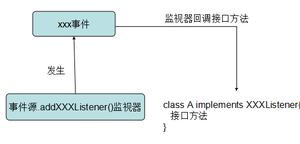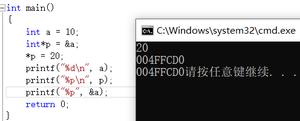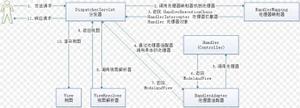javascript中toFixed()四舍五入使用方法详解
最近做的项目涉及到金额的计算,有一种方式就是进行四舍五入的规则进行小数点后面的尾数处理,以前一直以为toFixed方法就是四舍五入的,知道一个用户反馈了金额计算的bug我才如梦初醒(亏了一毛钱),才仔细深究了下toFixed这个方法,唉,还是我不够严谨啊,前车之鉴,大家勿走我的老路!
toFixed还不同的浏览器实现,在IE10及以上里面是正常的四舍五入,但是别的浏览器里面就不一样了,它不是正常的四舍五入(等下重点说),比如:
var a = 1.335;
console.log(a.toFixed(2))
// IE 1.34
//chorme 1.33
其他的浏览器我没去一一测试,所以如果大家用了其他浏览器的还是需要去实际测试一下,我这里就说说javascript的toFixed()方法的四舍五入原理:
toFixed它是一个四舍六入五成双的诡异的方法(也叫银行家算法),"四舍六入五成双"含义:对于位数很多的近似数,当有效位数确定后,其后面多余的数字应该舍去,只保留有效数字最末一位,这种修约(舍入)规则是“四舍六入五成双”,也即“4舍6入5凑偶”这里“四”是指≤4 时舍去,"六"是指≥6时进上,"五"指的是根据5后面的数字来定,当5后有数时,舍5入1;当5后无有效数字时,需要分两种情况来讲:①5前为奇数,舍5入1;②5前为偶数,舍5不进。(0是偶数)
但是,经过我的测试发现,在chorme下面(最新版),并没有完全遵守这个规则,尤其是5的后面没有数字的时候,不是这么判断的,如下:
var b = 1.335
b.toFixed(2)
"1.33"
var b = 1.345
b.toFixed(2)
"1.34"
var b = 1.355
b.toFixed(2)
"1.35"
var b = 1.365
b.toFixed(2)
"1.36"
var b = 1.375
b.toFixed(2)
"1.38"
var b = 1.385
b.toFixed(2)
"1.39"
可以发现在chorme下没有完全去遵循这个规律,或许它有自己的算法,但是毕竟它没有遵循通用的银行家算法,所以tofixed这个方法在涉及到金钱计算的业务中还是少用,
最好别用,否则可能会出大问题!
下面再再说说我自己的做法,就是根据精确位数来取小数点后的数,然后判断精确位是大于4还是小于等于4,上代码吧,不说了:
我们的业务是最多精确到分,也就是两位小数,最少就是取整,不留小数
function moneySwitch(money, precision){//precision是需要精确的位数,如百分位就是2
var result = 0;
//先进行一个千分位的四舍五入,保证3.0999这种情况在保留一位小数的时候能是对的,这一位可以这么做没什么问题
var money = parseFloat(money).toFixed(3);
try{
var int_part = money.split(".")[0], //小数点前的整数
point_num = money.split(".")[1],//取小数点后面的小数
precision_num = point_num[3-precision];
if(precision_num>4){//五入的情况
if(precision==1){
point_num = parseInt(point_num)+10+"";
if(point_num.length>3){//说明往整数位进1
int_part = parseInt(int_part)+1+"";
point_num = point_num[1]+point_num[2];
}else{
point_num = point_num[0]+point_num[1];
}
result = parseFloat(int_part+"."+point_num);
}else if(precision==2){
point_num = parseInt(point_num)+100+"";
if(point_num.length>3){//说明往整数位进1
int_part = parseInt(int_part)+1+"";
point_num = point_num[1];
}else{
point_num = point_num[0];
}
result = parseFloat(int_part+"."+point_num);
}else if(precision==3){
int_part = parseInt(int_part)+1+"";
point_num = 0;
}
result = parseFloat(int_part+"."+point_num);
}else{//四舍的情况
if(precision==1){
point_num = point_num[0]+point_num[1];
}else if(precision==2){
point_num = point_num[0];
}else if(precision==3){
point_num = 0;
}
result = parseFloat(int_part+"."+point_num);
}
}catch(e){
return parseFloat(money).toFixed(2);//如果过程中有出错就tofixed代替为解决
}
return result;
}
补充:
js处理数字保留2位小数,强制保留2位小数不够补上.00
1、保留两位小数 //功能:将浮点数四舍五入,取小数点后2位
2、//制保留2位小数,如:2,会在2后面补上00.即2.00
<!DOCTYPE html>
<html>
<head>
<meta charset="UTF-8">
<title>Test</title>
<script type="text/javascript" src="js/jq.js"></script>
</head>
<script type="text/javascript">
//保留两位小数
//功能:将浮点数四舍五入,取小数点后2位
function toDecimal(x) {
var f = parseFloat(x);
if (isNaN(f)) {
return;
}
f = Math.round(x*100)/100;
return f;
}
//制保留2位小数,如:2,会在2后面补上00.即2.00
function toDecimal2(x) {
var f = parseFloat(x);
if (isNaN(f)) {
return false;
}
var f = Math.round(x*100)/100;
var s = f.toString();
var rs = s.indexOf('.');
if (rs < 0) {
rs = s.length;
s += '.';
}
while (s.length <= rs + 2) {
s += '0';
}
return s;
}
function fomatFloat(src,pos){
return Math.round(src*Math.pow(10, pos))/Math.pow(10, pos);
}
document.write("四舍五入 <br/>")
document.write("3.14159267保留2位小数:" + toDecimal(3.14159267)+"<br/>");
document.write("3.14159267强制保留2位小数:" + toDecimal2(3.14159267)+"<br/>");
document.write("3.14159267保留2位小数:" + toDecimal(3.14559267)+"<br/>");
document.write("3.14159267强制保留2位小数:" + toDecimal2(3.15159267)+"<br/>");
document.write("3.14159267保留2位小数:" + fomatFloat(3.14559267, 2)+"<br/>");
document.write("3.14159267保留1位小数:" + fomatFloat(3.15159267, 1)+"<br/>");
document.write("五舍六入 <br/>")
document.write("1000.003保留2位小数:" + 1000.003.toFixed(2)+"<br/>");
document.write("1000.08保留1位小数:" + 1000.08.toFixed(1)+"<br/>");
document.write("1000.04保留1位小数:" + 1000.04.toFixed(1)+"<br/>");
document.write("1000.05保留1位小数:" + 1000.05.toFixed(1)+"<br/>");
document.write("科学计数 <br/>")
document.write(3.1415+"科学技术后:"+3.1415.toExponential(2)+"<br/>");
document.write(3.1455+"科学技术后:"+3.1455.toExponential(2)+"<br/>");
document.write(3.1445+"科学技术后:"+3.1445.toExponential(2)+"<br/>");
document.write(3.1465+"科学技术后:"+3.1465.toExponential(2)+"<br/>");
document.write(3.1665+"科学技术后:"+3.1665.toExponential(1)+"<br/>");
document.write("精确到n位,不含n位 <br/>")
document.write("3.1415精确到小数点第2位" + 3.1415.toPrecision(2)+"<br/>");
document.write("3.1455精确到小数点第3位" + 3.1465.toPrecision(3)+"<br/>");
document.write("3.1445精确到小数点第2位" + 3.1415.toPrecision(2)+"<br/>");
document.write("3.1465精确到小数点第2位" + 3.1455.toPrecision(2)+"<br/>");
document.write("3.166592679287精确到小数点第5位" + 3.141592679287.toPrecision(5)+"<br/>");
</script>
<body>
<input type="text" id="Score" />
</body>
</html>
这篇关于toFixed()的文章就介绍到这了,希望大家以后多多支持。
以上是 javascript中toFixed()四舍五入使用方法详解 的全部内容, 来源链接: utcz.com/z/344500.html









